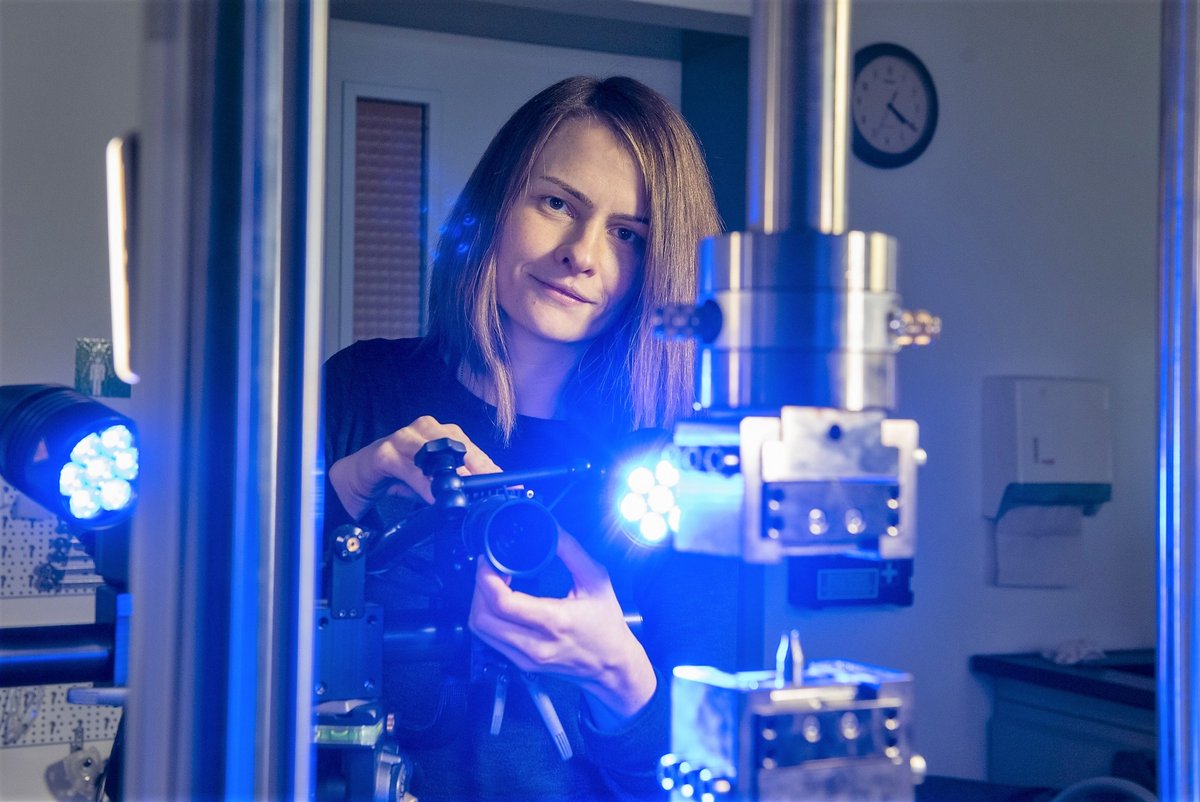"There is nothing to stop a woman from choosing a STEM major"
Daniela Schob has been passionate about technology since she was a child. During her mechanical engineering studies, the native of Lusatia was involved in the Association of German Engineers - for example as a board member of the students and young engineers. In addition to her work as a research assistant in the Department of Engineering Mechanics and Machine Dynamics, she played a key role in the organization and implementation of the first Germany-wide VDI Doctoral Students' Day at BTU Cottbus-Senftenberg in 2017, among other things. With her volunteer activities in the VDIni-Club Lausitz and as part of children's university lectures, she also wants to get children excited about technology and science.
"There is nothing that prevents a woman from choosing a STEM course of study except her own fears and doubts! Just start and have confidence in yourself," she advises girls and young women who are interested. "Networking with other women in similar situations is very helpful. Meanwhile, there are also many mentoring programs that support young women." For women who are at home in science and research, Daniela Schob would like to see equal opportunities, both during (doctoral) studies and afterwards, and an environment at eye level with inspiring mentor*s.
"Mechanical engineering offers a wide range of perspectives,"explainsthe young engineer. "These include working with nanoelements as well as designing and calculating large-scale systems for a wide variety of industries." In her master's thesis, she investigated the development of a material model for a metallic material. In recent years, she said, additive manufacturing, also known as 3D printing, has become established in the industry. For this forward-looking technology and the components it produces, she said, the challenge is to find application as a construction material. In her doctoral thesis, Daniela Schob paid particular attention to the mathematical description of material behavior, taking into account manufacturing technology properties. Curiosity, enjoyment of the subject, perseverance, and a desire to read and write were, in her view, particularly important in order to succeed here.
Her current research focuses on additive manufacturing and simulation of material behavior. "Using 3D printing, it is now possible to produce complicated geometries and components with a high degree of individualization," Daniela Schob emphasizes. This has great potential in the aerospace and medical technology sectors, she adds.
Her biggest challenges lay in the financing of the doctoral position and the time limits of employment contracts. "Project-related work, ideally thematically related to the doctoral topic, can partially cover the funding," she says in retrospect. "In my search for discussion partners in relation to my doctoral topic, I was helped on the one hand by my colleagues in the Department of Engineering Mechanics and Machine Dynamics headed by Prof. Dr. Matthias Ziegenhorn, but also by the close international cooperation with the TU Poznań and the TU Wroclaw."
Contact
Technische Mechanik und Maschinendynamik
T +49 (0) 3573 85-476
daniela.schob(at)b-tu.de
Stabsstelle Kommunikation und Marketing
T +49 (0) 3573 85-283
ralf-peter.witzmann(at)b-tu.de

